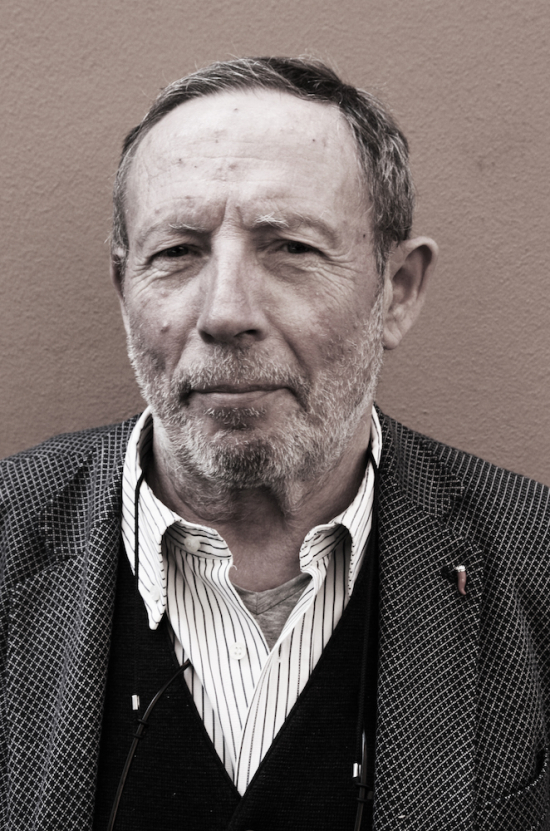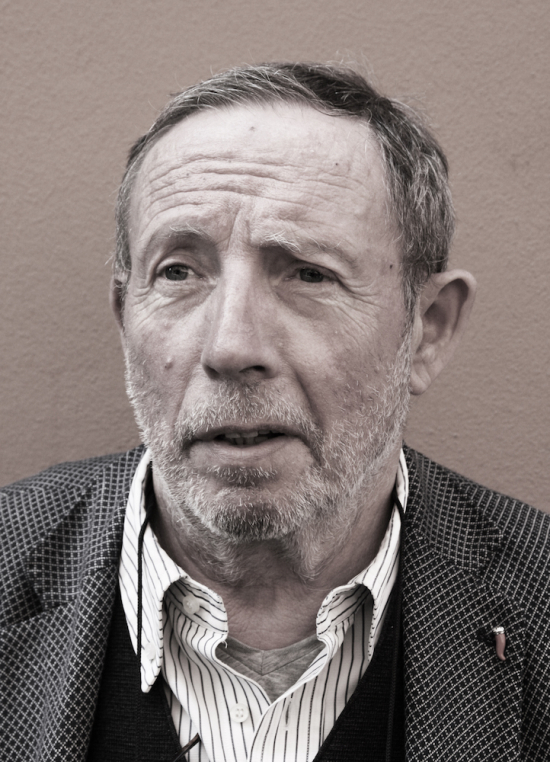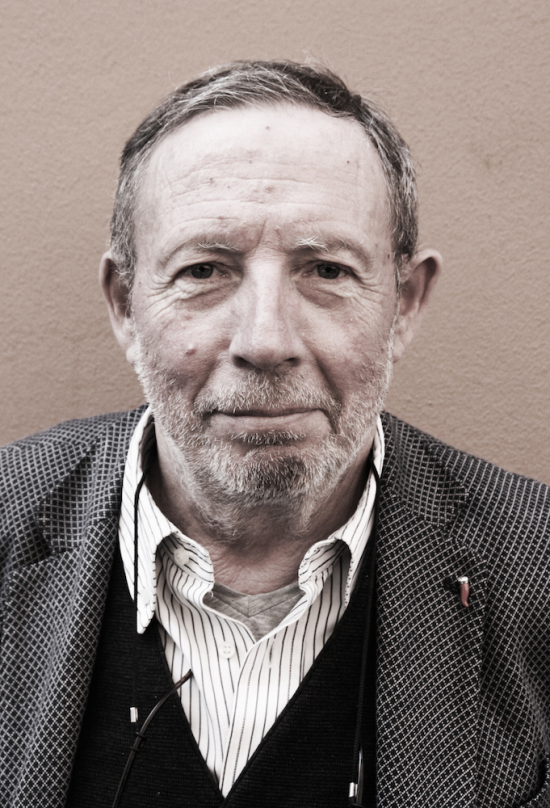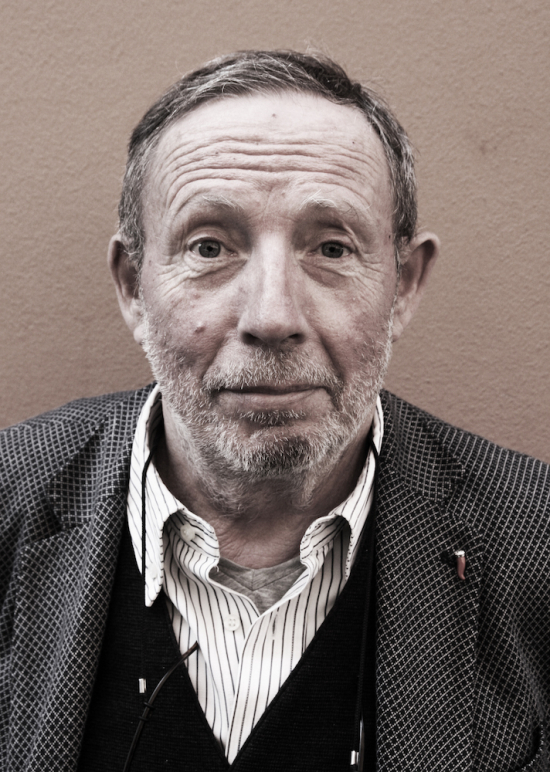Alessandro Molinari Pradelli
by Lina Vergara Huilcamán
At home mum used to decide the what we are going to eat today with the cook. She has accustomed each of us – her four children – that we should prepare the meal once a week, she gave us the money, venti, trentamila lire and we went grocery shopping and prepared the meal. The day I needed some money, everybody had canned food and was pissed off. Are we going to eat only canned food with you? and I answered You should be grateful, because at this rate one day there will be nothing more to eat. Mum gave me the money but you are not going to eat. I don’t give a fuck!
We all cook in our family, we love it. We were supposed to ask permission from our mum because the salaried woman, the cook, Erminia Berretini from Collodi —you ought to have seen her... an ace!— did not let the kitchen go, she never allowed us to cook. Erminia step aside! we used to tell her. To get her the fuck out of there, as the saying goes, we used to phone the car rental office, which had become part of our family, none of us could drive and we did not have a car, and they picked her up from the country where we lived, in the outskirts of the city, and took her to the centre of Bologna, to the cinema. Erminia, in half an hour, the car will come get you to take you to the cinema! we told her. They picked her up and when the movie was over they picked her up again and brought her back to us. We had done some creative work in the meantime.
It was our mother who taught us how to cook, of course, and also Erminia, grandma, all of them. When we made tortellini at Christmas, there were seven women around a chopping board. My family used to eat tortellini only on December 25th for lunch until January 6th, on Epiphany, for dinner, and not during the rest of the year, because tortellini were made for the feast, the greatest feast of all! Now we eat tortellini every Sunday, because we got rich, the feast is gone, we are no more interested in clamorous celebrations.
Dad was the son of a barber, when he was fourteen he was a piano teacher, a boy wonder, and played concerts all around Europe, where he learnt several languages, and then he finished his career in America, he toured with the Metropolitan, he was a conductor. He was lucky enough to conduct Maria Callas, Placido Domingo, the most important artists.
I did very badly at school, I failed five times, but then I earned two high school diplomas, one in scientific and one in classical studies, because I was fond of Greek and the subjects were different. I used to go to the bookshop, where I had a charge account paid by my mother, and I loved to read everything. Everything by Kant, for example. Professor I said I didn’t know what to do so I read Kant, and I did the same with Kierkegaard, and so on.
I got my driving licence when I was twenty-four, twenty-five, no one in my family could drive, no one had a car, so they forced me to get a driving licence, but I found it more fun to ride my bicycle. I had a very beautiful, very important bicycle, crafted by an artisan who had been the mechanic of Fausto Coppi, and to us Fausto Coppi is the best! I convinced my mother to give me the money for the bicycle as an Epiphany present, we used to get big presents for Epiphany, such as a ping pong set or a stage in the basement to perform theatre plays. I paid a visit to this Bolognese artisan, who I knew because I was an aficionado, and commissioned him a bicycle, I did not only request a custom-made frame, but also a lot of incredible details, including seat, brakes and handlebars. It was a race Patelli. I rode that bicycle for as far as three hundred, three hundred and fifty kilometres per day. I used to wake up and start pedalling. I tidied myself up as soon as I stumbled upon a fountain and got something to eat, even begging! On my bicycle I went anywhere, randomly, depending on the occasion. In the summer I used to visit my girlfriend who was in Apulia with her father picking up grapes, and artichokes in February, and I went there by bicycle... why not? It took me just a couple of days... I slept on the road. Once I travelled from Bologna to Rome and back in three days with mille lire in my pocket. You must be crazy to do that! My mum was looking for me because I hadn’t told her I was going to Rome, she thought I wouldn’t go farther than Florence. I was eighteen, maybe younger, fifteen, sixteen, seventeen, eighteen... it makes no difference, that’s the way things used to go in those years.
What was that pushed me to travel all across Italy by bicycle? Freedom.
Travelling by bike was naturally followed by cooking. Have you ever tried travelling without eating? Impossible. Everything was fine for me, I had to experience what Italy was. I think every region has its own story, everyone has a lot to say! In his introduction, Massimo Montanari writes there is no regional history, and I completely disagree. There is undoubtedly a regional history, starting from produce for example, we import artichokes and eat artichokes, but it is not actually a Bolognese vegetable. Now the situation has changed, you can find everything everywhere, but when I toured Italy, I enjoyed the fact that in San Ferdinando di Puglia there was a world at the table, which you discovered at the table. Certain pastas, sauces... were so different! I also enjoyed recovering words, transcribing vernacular terms, I approached people and asked how do you call that?.
When I was down there, I used to spend the morning or the afternoon by the seaside with my girlfriend, but I often left her by the seaside because her father and mother were there, and rode my bicycle to Lecce, up towards Matera, Potenza... I have lived Basilicata! The last book I published is actually a collection of recipes from Basilicata, a well-made book, because I am obsessively accurate. I consider my books as my children, I am quite a serious person and a book should be brilliant and well-made. But now there are no more proofreaders and we read miserable books and newspapers. I could talk to you about Apulia for two or three hours, about Basilicata for two or three hours, Calabria for two or three hours, you know?
I have memories, interests of all kinds, it’s my life, my whole life experience. I think every region has its own systems, like ceramists for example, ceramics has a history of its own, every region has its own way of digging up the ground and making objects. Along the way you meet rarities, you meet the artisan who can make fipple flutes for the bagpipe and so there are the areas of the bagpipers. Wherever people play bagpipes, there is an artisan around.
I have never stopped touring Italy, but I have given up biking. Last year, I gave this wonderful bike to my son who hung it on the wall of his bedroom. That’s life, quite a long story.
The important detail is being free inside, it is the truth, it is what we have lived.
Unfortunately my son brought me back into line, but I would have spent hours listening to the stories this polite gentleman tells in his lively and provocative language, in order to smell through his words the scent of freedom. And of culture. I felt the desire to be endowed with that kind of intelligence and to share it, with the stirring and curiosity that make you wake up in the morning and get out to discover the world, without limits, not even those imposed by your mother. This isn’t likely to be an easy life, as we are prisoners of ourselves and our rules and fears, we are judges and accused depending on life opportunities, but nothing is impossible, and above all nothing is lost. I have deliberately transcribed his words as he uttered them to make you relive this encounter with me and feel free to interpret them and to dream as I do of pedalling down a very long road, on a beautiful sunny day, with your eyes and heart open. Free.
Alessandro Molinari Pradelli is a journalist, writer, creator and producer of cultural and culinary events, founder and collaborator of many magazines, collaborator of daily newspapers, bibliophile (he owns the second most important private library specialized in gastronomy in Italy). You can find his extended bibliography through google and in the cooking section of many Italian bookshops.



